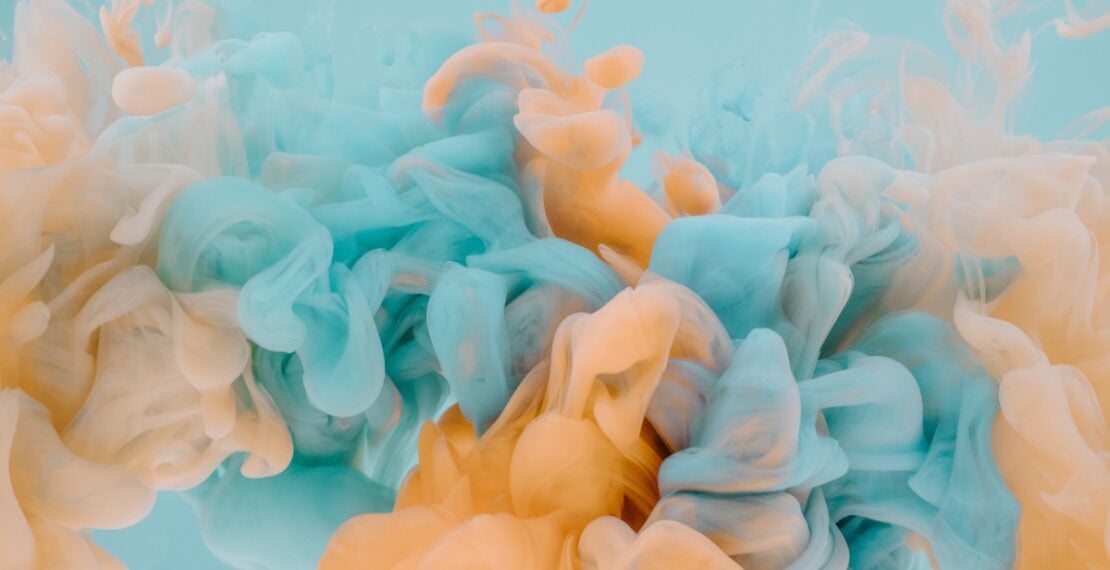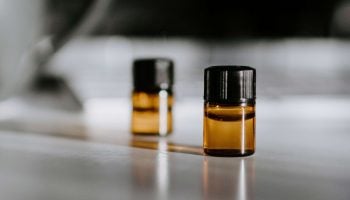LSD, or lysergic acid diethylamide, is a psychedelic compound with a layered history. First synthesized in Basel, Switzerland in 1938, LSD is derived from the ergot fungus and induces hallucinogenic effects when consumed, by binding to the serotonin 2A receptor in the brain. Its psychedelic properties were discovered in 1943, when chemist Albert Hofmann inadvertently absorbed a small dose of LSD and entered into an altered state of consciousness.
“I lay down and sank into a not unpleasant intoxicated-like condition, characterized by an extremely stimulated imagination,” Hofmann recounted. “In a dreamlike state, with eyes closed (I found the daylight to be unpleasantly glaring), I perceived an uninterrupted stream of fantastic pictures, extraordinary shapes with intense, kaleidoscopic play of colors.”
Throughout the 1950s, the effects of LSD were examined in numerous scientific studies. As LSD’s therapeutic benefits came to light, hallucinogenic drugs began to shift the field of psychiatry. LSD became incorporated into some forms of mental health treatment: Between 1950 and 1965, around 40,000 patients received LSD-assisted psychotherapy for mental disorders such as neurosis, schizophrenia, substance use disorder, and psychopathy.
Alongside its burgeoning role within mental health treatment, LSD was also a popular psychedelic within the counterculture and hippie movement of the 1960s. Colloquially referred to as “acid”, LSD became increasingly politicized and regulated. In 1968, the possession of LSD was outlawed in the United States, and clinical research came to a halt.
Only in recent years has the psychedelic movement experienced a comeback, referred to as the psychedelic renaissance or the Third Wave of psychedelics. Although LSD is still misleadingly classified as a Schedule I drug (defined as having “no currently accepted medical use and a high potential for abuse”) in the United States, research on psychoactive substances is newly underway, with the approval of the FDA and DEA. The results of recent clinical trials have been promising, and public opinion is gradually shifting to regard psychedelics as medicines rather than as drugs of abuse.

LSD for anxiety treatment
Characterized by an excessive degree of worry and fear about everyday events, anxiety is the most highly diagnosed mental illness in the United States. Roughly 31% of the American population struggles with an anxiety disorder across their lifetime, which amounts to about 40 million individuals each year.
Many individuals struggle with some degree of anxiety, even if their experiences do not fulfill the criteria for a clinical diagnosis. A 2020 survey found that 62% of respondents reported some feelings of anxiety, and 47% described experiencing anxiety regularly.
There is nothing wrong with feeling anxious every once in a while as a natural response to stressful events. But if the feelings become excessive, uncontrollable, or disruptive to everyday functioning, additional support may become necessary to treat anxiety.
A growing body of research demonstrates the therapeutic potential of psychedelic substances, continuing the scientific conversation on hallucinogens that first began in the 1950s. When administered in a safe and supervised context, psychedelic drugs–such as LSD, psilocybin (the active ingredient in magic mushrooms), MDMA, DMT, ketamine (a dissociative anesthetic with antidepressant qualities), and even cannabis–have shown efficacy in treating conditions such as anxiety, depression, bipolar disorder, and post-traumatic stress disorder (PTSD).
The resurgence of psychedelic research over the past decade adheres to modern standards of scientific rigor, which may have been lacking in earlier studies from the 1950s. Now, with increasing prevalence, we have access to clearer and more precise data on the effects of psychedelic medicines.
Study showing positive effects for people with anxiety
In 2014, a double-blind, placebo-controlled pilot study examined the relationship between LSD-assisted psychotherapy and anxiety associated with life-threatening diseases. Participants who received LSD-assisted psychotherapy showed reductions in both trait anxiety and state anxiety, according to the State-Trait Anxiety Inventory (STAI). Trait anxiety refers to the personality characteristics that persist across time and across contexts, while state anxiety refers to a temporary way of being that arises in response to a specific situation.
Reductions in STAI were observed in study participants at the 12-month follow-up, showing that the therapeutic benefits of LSD are felt in both the short- and long-term. In addition, 66.7% of study participants reported a rise in their quality of life. The LSD experience was consistently regarded as “insightful, cathartic, and interpersonal,” and no significantly adverse side effects were reported. This MAPS-sponsored pilot study was led by Swiss psychiatrist Peter Gasser, the only practitioner in the world who is legally permitted to administer LSD in his private therapy practice.
A 2017 study found that the consumption of LSD led to improved mood and increased optimism among 20 healthy volunteers. Increases in subjective well-being, happiness, closeness to others, openness, and trust were also reported by participants of a double-blind, placebo-controlled study in 2014.
What makes substances like LSD so therapeutic? One important factor is that psychedelic experiences tend to result in increased psychological flexibility.
As Dr. Alan Davis, Adjunct Assistant Professor in the Psychedelic Research Unit at Johns Hopkins University, explains, “Psychological flexibility is about being open to your moment-by-moment experiences, being present in your life, and doing what matters in the face of barriers/obstacles, including emotional ones. Psychedelic experiences are associated with increasing one’s ability to engage in this way.”
An expansive and flexible mindset, in turn, helps to combat the stagnant and unhelpful thought patterns that characterize anxiety, depression, and other mental health challenges.
Curious about supporting your mental health through psychedelics? Check out Third Wave’s vetted directory of ketamine clinics and psychedelic therapists in the US.

Does LSD cause anxiety?
It is possible to experience anxiety while using LSD. The stimulatory nature of this psychedelic compound can temporarily increase blood pressure, heart rate, and body temperature, mimicking the physiological symptoms of anxiety. That being said, there are no severe adverse effects associated with LSD, as long as it is consumed within a safe setting.
Those with a history of schizophrenia should consult with a medical professional if they are considering working with LSD, as the effects of the drug, especially in high doses, may enhance symptoms of psychosis and lead to an unhealthy dissociation from reality. Due to the heightened possibility of a “bad trip”, psychedelic drug use is generally not advisable for individuals prone to psychosis.
Anxiety may arise during an LSD experience because psychedelics facilitate one’s ability to access and process emotions. The reconfiguration of neural networks that occurs during a psychedelic experience can cause previously unconscious material to appear in one’s conscious awareness. While in this altered state of consciousness, people may confront feelings of anxiety that were previously hidden. In such cases, the LSD does not cause anxiety so much as it reveals what was already there. An appropriate set and setting, as well as thorough integration, can help people process the emotions (especially challenging ones) that arise during a psychedelic journey.
How will LSD play a role in the future of anxiety therapy?
The renewal of psychedelic research is changing the way we understand neuroscience, consciousness, and mental health. Psychoactive substances like LSD and psilocybin will play a pivotal role in therapy for anxiety, depression, and other forms of psychological distress. Due to the mystical experiences that are often evoked by psychedelics, the mental health field may come to place greater emphasis on spiritual wellbeing once psychedelic medicines enter into the mainstream.
As clinical trials continue and legal barriers are overturned, psychedelic-assisted therapy will likely become increasingly accessible to the public. To ensure maximum safety and efficacy, sessions will optimally be facilitated by trained medical professionals. The consciousness-altering nature of medicines like LSD and psilocybin is likely to enhance and deepen the standard psychotherapeutic process.
“I am convinced that LSD can bring additional benefit for some patients,” said Dr. Peter Gasser, who offers legal treatment options with LSD in Switzerland. “I think it has another quality to it than just treating patients through talk therapy, gestalt, behavioral therapy, or whatever. Which does not mean that I would say it’s the only [treatment], the real one, or the best one. Rather, I’d think that it should have its place among other methods. But for some people, I think it’s really helpful to go into an altered state of mind, to have maybe spiritual experiences, peak experiences, which is something you cannot achieve with normal therapy.”
Until psychedelic-assisted therapy becomes widely legalized and available, one way to experience the benefits of these medicines is through self-guided treatment, such as microdosing. The practice of taking small, sub-perceptual doses of psychedelics on a regular basis has been shown to diminish anxiety and enhance wellbeing.
If you’d like to learn how to use psychedelic microdoses to elevate your mind, body, and spirit, check out Third Wave’s Microdosing Course. This will guide you through the basics—then dive much deeper, helping you tailor your routine to meet your personal goals.








Acid and social anxiety
Individuals under the influence of LSD exhibit less reactivity to fear, according to a 2016 study. When research participants were shown facial images of varying emotional states, faces depicting fearful emotions produced less brain activity than did faces depicting emotions such as anger or joy.
“This ‘de-frightening’ effect could be an important factor for positive therapeutic effects,” said Dr. Felix Müller, lead author of the study.
People who experience less fear are more comfortable in novel situations–and therefore less likely to feel social anxiety in public settings. The link between LSD and diminished social anxiety was examined in a 2021 study, wherein a group of mice was injected with low doses of LSD. In comparison to the placebo group, the mice treated with LSD were more comfortable interacting with an unfamiliar mouse that was placed in the same cage.
The LSD-injected mice’s lack of social fear shows the potential of LSD as a treatment for social anxiety in humans.